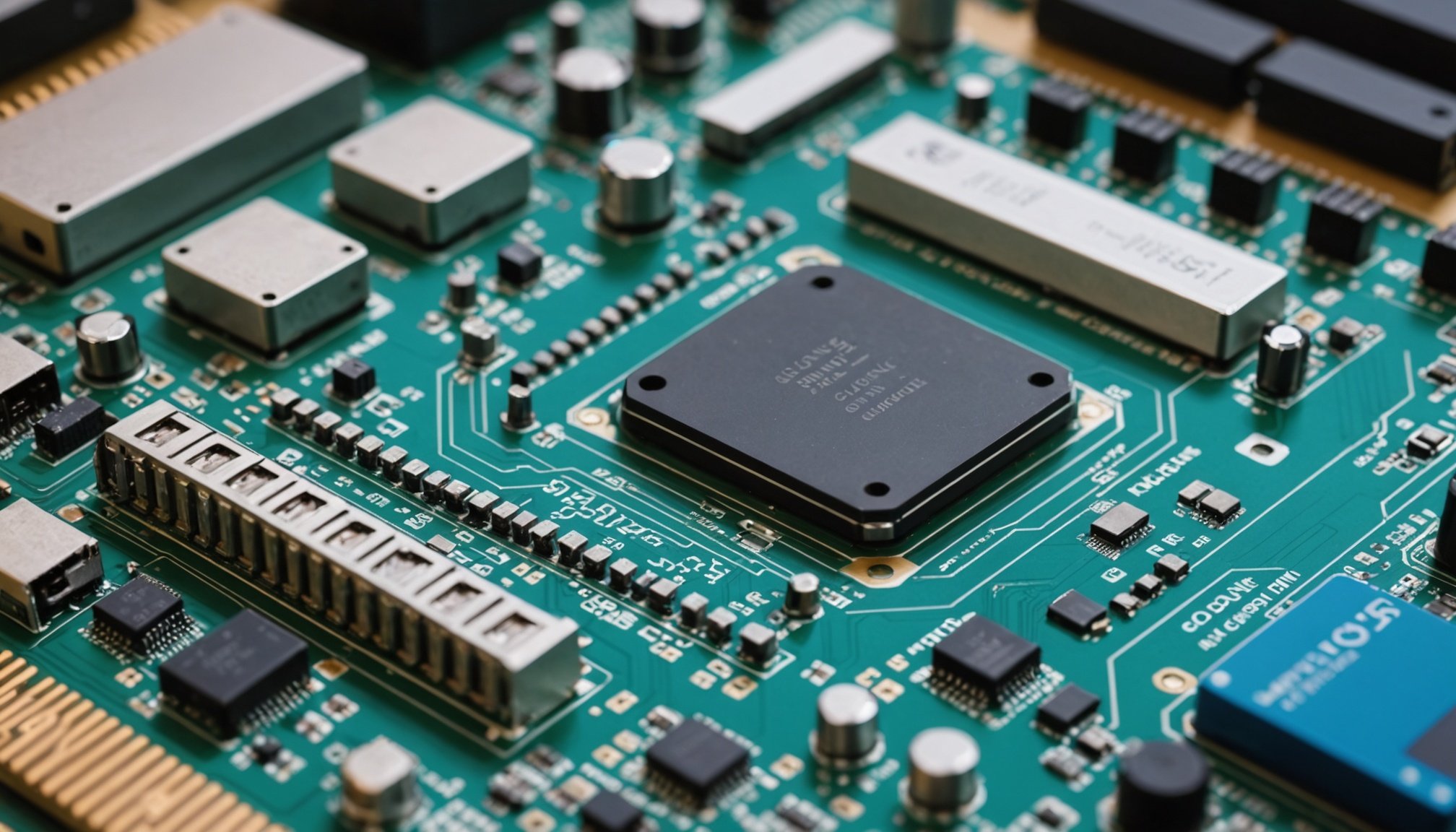Transformative UK Hardware Innovations and Their Industrial Impact
British technology breakthroughs in computing hardware have been pivotal in reshaping multiple industries. The UK computing hardware advancements extend beyond traditional manufacturing to significantly impact AI, high-performance computing, and advanced electronics sectors. These hardware innovations are characterized by increased processing speeds, energy efficiency, and adaptability, providing industries with tools to maintain competitive advantages globally.
Leading British companies and research institutions play a crucial role in driving this progress. They focus on developing cutting-edge processors, specialized chipsets, and novel architectures that improve computational capabilities. For instance, the integration of UK-designed hardware into AI applications accelerates machine learning processes, enhancing everything from data analysis to autonomous systems. Similarly, in manufacturing, these advancements enable precision automation and real-time process monitoring, increasing productivity and reducing resource waste.
Topic to read : How Does Computing Hardware Impact Everyday Technology?
The rapid adoption of such UK computing hardware advancements underscores the nation’s commitment to sustaining industrial innovation. This momentum encourages collaboration between academia and industry, fostering environments where emerging technologies can be tested and refined swiftly. Ultimately, these British technology breakthroughs are not only transforming existing manufacturing and tech landscapes but also paving the way for new enterprise models centered on smart, hardware-driven solutions.
Key UK Technologies Shaping Industrial Evolution
The UK has made significant strides in advanced processors design, pushing the boundaries of computation power and energy efficiency. These processors are crucial for handling complex algorithms especially in data-intensive industries, driving digital transformation across sectors. At the same time, the field of quantum computing UK research is accelerating, with concerted efforts to develop quantum systems capable of solving problems beyond classical capabilities. This effort is laying the groundwork for breakthroughs in materials science, cryptography, and complex simulations.
Also to see : How does UK computing hardware support the development of IoT devices?
Microelectronics innovation in the UK complements these advances. Cutting-edge microelectronics enable smaller, faster, and more efficient chips, powering everything from consumer devices to industrial controls. These chips serve as the backbone for new industrial solutions, enhancing automation and machine intelligence.
Another area of growth is the development of IoT hardware crafted by UK engineers. This hardware integrates sensors, connectivity, and data processing to create smart networks that monitor and optimize industrial operations. Use cases span oil and gas monitoring, smart manufacturing lines, and supply chain management, where real-time data improves efficiency and reduces downtime. The UK’s ecosystem for sector applications is robust, demonstrating practical deployments that highlight the versatility and impact of these technologies in industrial evolution.
Case Studies: UK Hardware Innovations in Action
Explore how UK industry case studies highlight the transformative effect of adopting advanced hardware solutions. A key example lies within manufacturing, where companies integrate cutting-edge computing devices to streamline production and enhance efficiency. These businesses benefit from reduced downtime and improved quality control, showcasing tangible hardware adoption impact across the sector.
A remarkable trend emerges in AI-driven industries, where local computing solutions fuel innovations in automation and data analysis. By harnessing next-generation UK hardware, firms can perform complex calculations on-site. This boosts response times and lowers reliance on external cloud services, contributing to more robust and secure operations.
Small- and medium-sized enterprises (SMEs) also exemplify successful adoption of homegrown innovations. These companies often encounter resource constraints but gain competitive advantages by embracing tailored hardware that fits their workflows. The resultant digital transformation not only elevates productivity but also opens paths for scaling and diversification within local markets.
In summary, these UK industry case studies prove that strategic hardware investment catalyzes modernization, promotes innovation, and strengthens national competitiveness. Such stories inspire other stakeholders looking to leverage hardware advancements for meaningful business growth.
Expert Insights: Industry Perspectives on Future Potential
Understanding the trajectory of hardware innovation requires insights straight from expert interviews with UK tech leadership. Industry leaders consistently emphasize hardware’s foundational role in enabling emerging technologies like AI, IoT, and edge computing. Their forecasts highlight a shift toward more energy-efficient, versatile components tailored to meet diverse sector demands, from manufacturing to healthcare.
Several UK-based industrial leaders identify unique challenges such as funding constraints, skills shortages, and regulatory hurdles. However, they also see these as opportunities to foster partnerships between academia, government, and private sectors. This collaboration is seen as vital to accelerate R&D and scale prototypes into viable commercial products.
Consensus among these experts revolves around strategic priorities: focusing on advanced semiconductor technologies, enhancing supply chain resilience, and investing in sustainable manufacturing practices. These priorities align closely with the UK’s ambitions to position itself as a global hardware innovation hub.
By leveraging these combined insights, stakeholders can better navigate the complex UK landscape, ensuring hardware’s future potential is fully realized. Understanding these perspectives informs smart investment and policy decisions, crucial for maintaining competitive advantage in a rapidly evolving technological environment.
The UK’s Global Position in Tech Hardware Innovation
Exploring strengths, influence, and competitive edge
The UK’s global position in tech hardware innovation is marked by distinct competitive strengths. Unlike larger manufacturing hubs, the UK focuses on high-value, specialised hardware components, making its tech sector internationally competitive. The UK excels in research and development (R&D) that drives cutting-edge innovations, particularly in semiconductors, quantum computing hardware, and telecommunications equipment.
This strategic focus supports the UK’s role in global supply chains, where it contributes critical components and expertise rather than mass production. Its involvement in setting international standards ensures that UK hardware advancements shape global industry practices. For example, British firms actively participate in developing protocols that improve interoperability and security worldwide.
International competitiveness is further strengthened by collaborative networks between academia, government, and industry within the UK. These partnerships foster innovation ecosystems that attract global investment and talent, reinforcing the UK’s export influence in tech hardware sector niches.
Overall, the UK maintains a unique and influential role in the international hardware market. Its innovations not only serve domestic needs but also export impact across continents—helping to define future global technology landscapes. This nuanced positioning underlines the UK’s ongoing relevance in an increasingly interconnected tech economy.
Emerging Trends and Predictions: What’s Next for UK Industry?
As UK industries brace for the future, future trends in UK hardware signal transformative changes ahead. Expect advancements like next-generation semiconductor technologies, AI-integrated devices, and sustainable materials to redefine manufacturing and product capabilities. These innovations are set to enhance productivity across sectors such as automotive, aerospace, and healthcare, offering smarter, more efficient solutions.
The UK government’s commitment to an innovation roadmap plays a pivotal role in accelerating these trends. Strategic funding and collaborative programs aim to fuel R&D, enabling startups and established firms alike to push boundaries. Public investment focuses on nurturing emerging tech clusters and infrastructure, ensuring the UK remains competitive on the global stage.
Preparing for this technological shift means industries must adopt agile frameworks and invest in workforce reskilling. Embracing Industry 4.0 principles, including IoT integration and data-driven decision-making, is vital for responding proactively to market changes. Forward-looking industry forecasts suggest that those embracing innovation early will capture new opportunities and mitigate disruption risks effectively.
In sum, the future of UK hardware depends on close synergy between innovation policies, capital infusion, and industry adaptability to shape a resilient and prosperous technological landscape.




